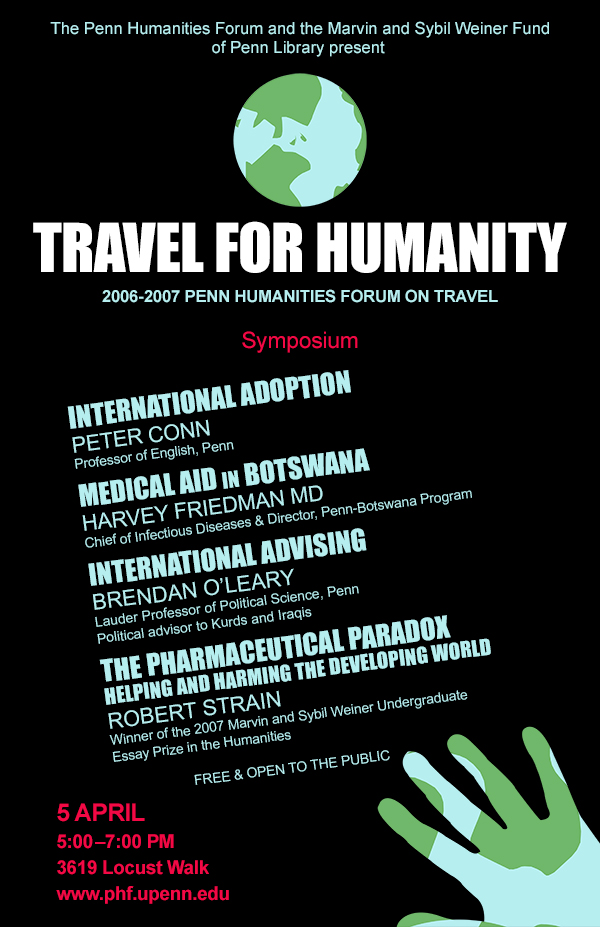On the face of it, the virtue of international aid would seem self-evident: the privileged West providing expertise, food, technology, and money to people in need. And yet, one of the many perplexities surrounding globalism is the ethical import of these humanitarian efforts. Crossing borders to bring change—however necessary or desired—may be construed as a form of cultural or political invasion.
The distinguished members of this symposium consider international adoption, medical aid, governmental advising, and other motives for Travel for Humanity. Joining them as a presenter is Robert Strain, a Penn junior majoring in Political Science, who took First Place in the 2007 Marvin and Sybil Weiner Undergraduate Essay Contest in the Humanities for his essay on the ethics of humanitarianism in a globalized world.
The Pharmaceutical Paradox: Helping and Harming the Developing World
Robert Strain, College '08, First Place, 2007 Marvin and Sybil Weiner Undergraduate Essay Prize in the Humanities
International Adoption
Peter Conn, Professor of English, Penn, and author of Pearl Buck: A Cultural Biography.• Adoption is among the oldest, most widespread of human practices. How much has international adoption, a modern development, been influenced by warfare, technologies, and changing notions of humanitarian intervention?
Medical Aid in Botswana
Harvey Friedman, MD, Chief of Infectious Diseases, and Director, Penn–Botswana Program, Penn Medical Center.
• Partnerships between African governments and more economically developed nations are needed to address the AIDS pandemic. How much of a difference can those partnerships make?
International Advising
Brendan O’Leary, Lauder Professor of Political Science, and Director, Solomon Asch Center for Study of Ethnopolitical Conflict.
• Are international advisors missionaries, mercenaries, misfits or mischief-makers?



